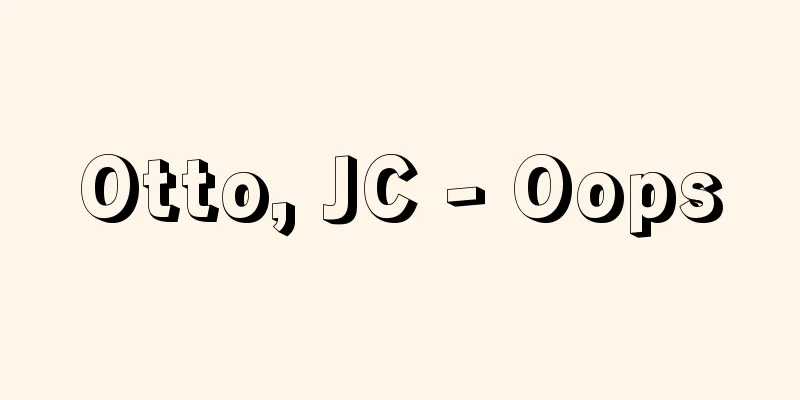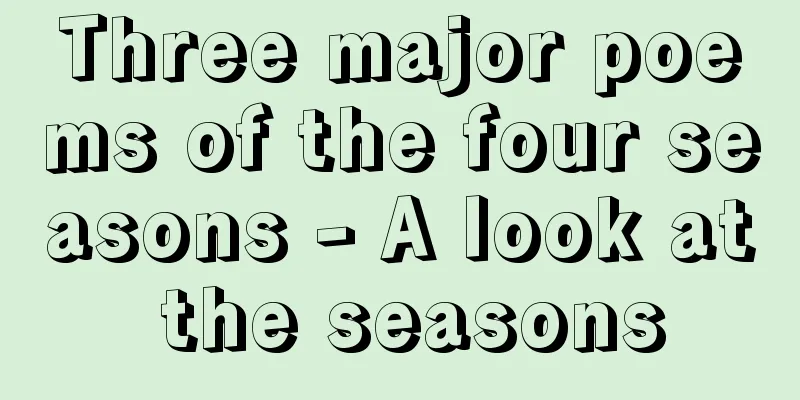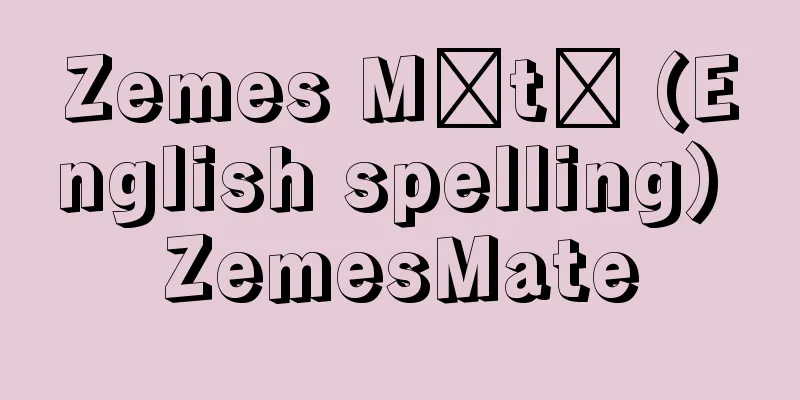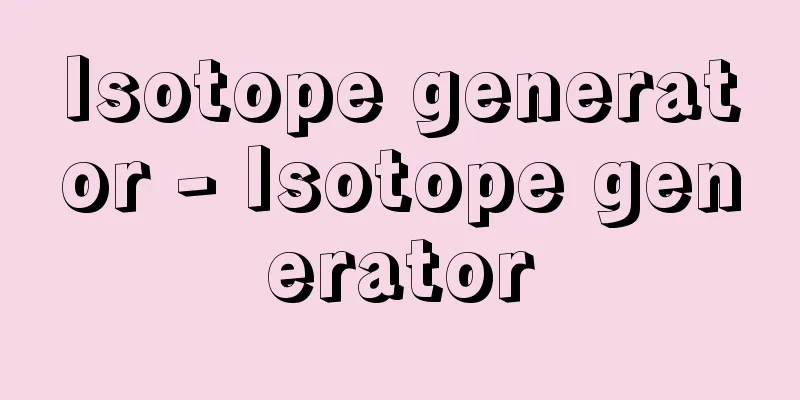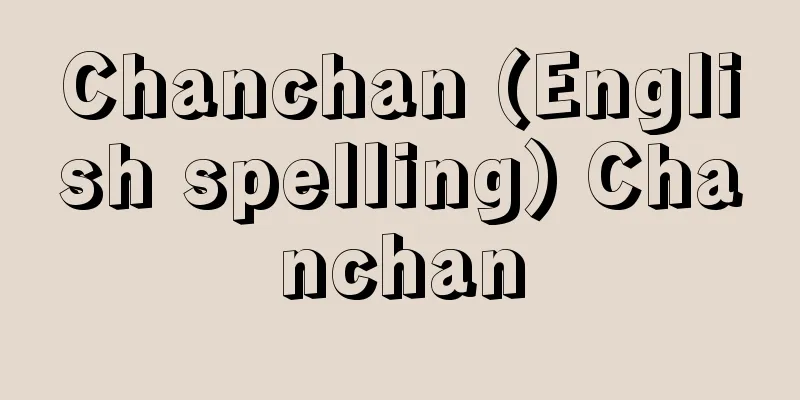Civics education

|
Education aimed at nurturing people who consciously maintain a modern civic and national consciousness in order for modern civil society and the nation to reproduce itself. In other words, it is education that cultivates young people to become citizens and nationals who have acquired political, economic, and social knowledge about the realities and ideals of society and the nation, and who have the attitude to act in accordance with that knowledge. [Norio Ikeno] Two Types of Civic EducationJust as modern civil societies and nations can be categorized into advanced types such as those in the UK, the US, and France, and backward types such as those in Germany and Japan, depending on the maturity of their industrial citizen classes, modern civic education can also be divided into "advanced" and "backward" types. The advanced type has the ideal of democracy, having experienced individualism through the spread of Renaissance and Enlightenment ideas, and cultivates citizens (citizens) (English) or "citoyen" (French) who are free from state power. The backward type has not experienced individualism sufficiently, and has the ideal of nationalism out of the need to counter the imperialist capitalism of developed countries, and cultivates citizens (Staatsbürger) who are loyal to their nation. Japan's civic education began as a backward type, and shifted to the advanced type after World War II. [Norio Ikeno] Civics as a subjectCivics education is not only taught throughout school education, but is also taught in special subjects such as "Civics." Civics education as a subject places emphasis on the content of the constitution, law, political systems, economic mechanisms, and social organizations. It therefore incorporates the content of the social sciences that have developed alongside the development of civil society and the nation, and have discovered and founded that society and nation, and incorporates the requirements of social sciences such as empirical and critical thinking, so it also functions as social science education. In Japan after the Second World War, civic education as a subject has been centered on social studies, which is defined as the foundation for understanding social life and cultivating "the civic qualities necessary for effective builders of a democratic and peaceful nation and society." In particular, the "civics field" in junior high schools and the "civics (modern society, ethics, politics and economics)" that have been implemented in high schools since 1989 (Heisei 1) are at the core of civic education. Civic education in the second half of the 20th century required not only basic politics, economics, and society, but also current social issues (science and technology, environment, international society, peace, human rights, etc.) that have emerged with the development of modern democratic societies and nations. When civic education is implemented as a subject, the problem of how to organize and teach the diverse content and the problem of how to ensure the formation of the attitude required by civic education within the subject remain as issues. Since the end of the Cold War and the dawn of the 21st century, civic education around the world has undergone major transformations. In particular, the EU has responded to the globalization of nations and societies by changing the nature of education for their members. Civic education in European countries has shifted from citizenship as a member of a nation or society to citizenship as a member of Europe, and there is a demand for education that cultivates young people to be multidimensional, multi-layered nationals, citizens, and citizens. Civic education in Japan, too, is being called upon to advance as a pluralistic citizenship education that not only educates members of a nation or society, but also cultivates individuals as members of a diverse range of dimensions, such as a global society or a local community. [Norio Ikeno] "The Story of Civic Education" by Sekiguchi Yasushi (1946, Bunjudo Publishing Division)" ▽ "The Concept of Civic Education" by G. Kerschensteiner, translated by Tamai Narumitsu (1981, Waseda University Press)" ▽ "The Concept of Civic Education Immediately After the Defeat of the War" edited and written by Katagami Soji (1984, Educational Historical Materials Publishing Association)" ▽ "Compilation of Basic Documents on Social Education - The Formation and Development of Social Education Theory" by Royama Masamichi, Sekiguchi Yasushi, Kawamoto Unosuke, et al. (1992, Ozorasha)" ▽ "Civic Education in Modern Japan - Freedom, Law, and Competition in Textbooks" by Matsuno Osamu (1997, Nagoya University Press)" ▽ "A Study of the History of Contemporary Japanese Social Education" edited by Shinkai Hideyuki (2002, Japan Library Center)" ▽ "Citizenship Education Around the World - Citizen Formation in the Global Era" edited by Minei Akiko (2007, Toshindo)" ▽ "Civic Education Dictionary" edited by the Japanese Society for Civic Education (2009, Daiichi Gakushusha) [Reference items] | | |Source: Shogakukan Encyclopedia Nipponica About Encyclopedia Nipponica Information | Legend |
|
近代市民社会・国家が自らを再生産するために、近代市民・国民意識を意識的に保持した担い手を育成することを目的にした教育。つまり、社会・国家の現実や理想に関する、政治的、経済的、社会的な知識を習得し、それに従って行動する態度をもった市民・国民に青少年を育成する教育のことである。 [池野範男] 公民教育の二類型近代市民社会・国家が、産業市民層の成熟度によってイギリスやアメリカやフランスの先進型と、ドイツや日本などの後進型に類型されるように、近代の公民教育も「先進型」と「後進型」とに分かれる。先進型は、ルネサンスや啓蒙(けいもう)思想の普及を通して個人主義を経験することによってデモクラシーを理念としてもち、国家権力から自由な市民citizen(英語)、citoyen(フランス語)を育成する。後進型は、個人主義を十分に経験せずに、先進諸国の帝国主義的資本主義に対抗する必要からナショナリズムを理念としてもち、国家への忠誠心をもった国民・公民Staatsbürger(ドイツ語)を育成する。日本の公民教育は後進型で始まり、第二次世界大戦後、先進型へ転じた。 [池野範男] 教科としての公民教育公民教育は学校教育全体で行われるだけでなく、「公民科」などの教科を特設しても行われる。教科としての公民教育では、憲法、法律、政治制度、経済機構、社会組織などについての教科内容が重視される。したがって、市民社会・国家の発達とともに成長しその社会・国家を発見し基礎づけてきた社会諸科学の内容を取り込み、実証性や批判性などの社会科学の要求をいれ、社会科学教育としても機能する。 第二次世界大戦後の日本では教科としての公民教育は、社会生活を理解し、「民主的、平和的な国家・社会の有為な形成者として必要な公民的資質」(の基礎)を養うと規定された社会科を中核に行われてきた。とくに中学校の「公民的分野」や、1989年度(平成1)から高校で実施されている「公民科(現代社会、倫理、政治・経済)」がその中心になっている。20世紀後半の公民教育は、単に基本的な政治、経済、社会だけでなく、現代民主主義社会・国家の発展に伴い現れてきた現在の社会問題(科学技術、環境、国際社会、平和、人権など)をも内容とした学習を必要としていた。公民教育が教科として行われる際には、多様な内容をどのように体系づけ指導するかという問題と、公民教育が要請する態度形成をどのようにその教科内で保証するかという問題が、課題として残されている。 冷戦が終了し、21世紀になって、世界の公民教育は大きく変容した。とくに、EUを中心に、国家・社会のグローバリゼーションに対応し、その構成員教育の様相を変化させている。ヨーロッパ諸国における公民教育は、国家・社会の構成員としてのシティズンシップからヨーロッパの構成員としてのシティズンシップへ転換し、多次元的・多重的な国民・市民・公民に青少年を育成する教育を求めている。日本の公民教育も、国家や社会の構成員の教育のみならず、グローバルな社会、あるいは地域社会などの多様な次元の一員として個々人を育てる、多元的なシティズンシップ教育として進めることが課題として要請されているのである。 [池野範男] 『関口泰著『公民教育の話』(1946・文壽堂出版部)』▽『G・ケルシェンシュタイナー著、玉井成光訳『公民教育の概念』(1981・早稲田大学出版部)』▽『片上宗二編・著『敗戦直後の公民教育構想』(1984・教育史料出版会)』▽『蝋山政道・関口泰・川本宇之介他著『社会教育基本文献資料集成――社会教育理論の形成と展開』(1992・大空社)』▽『松野修著『近代日本の公民教育――教科書の中の自由・法・競争』(1997・名古屋大学出版会)』▽『新海英行編『現代日本社会教育史論』(2002・日本図書センター)』▽『嶺井明子編著『世界のシティズンシップ教育――グローバル時代の国民/市民形成』(2007・東信堂)』▽『日本公民教育学会編『公民教育事典』(2009・第一学習社)』 [参照項目] | | |出典 小学館 日本大百科全書(ニッポニカ)日本大百科全書(ニッポニカ)について 情報 | 凡例 |
>>: Community Center - Kominkan
Recommend
Rashomon vine (Meehania urticifolia)
A perennial plant of the Lamiaceae family. It is f...
Eyebrow pencil - eyebrow pencil
...But by the mid-19th century, eyebrow ink, made...
Insulation
〘noun〙① To cut off a relationship. To cut ties. ※A...
Iwadenda - Iwadenda
This medium-sized fern grows on rocks, and its Jap...
Trichinopoly
...Also known as Tiruchi. Formerly known as Trich...
Green vegetable wholesaler - Aomono Donya
...Famous vegetable markets in the early modern p...
Guard Ishida - Morie Ishida
...After the Asakusa Opera era ended, this light ...
Fox fire
A type of mysterious light that appears on mounta...
Enkianthus nudipes (English spelling) Enkianthusnudipes
… [Kei Yamazaki]. … *Some of the terminology that...
Round-about trade
This refers to trade that is conducted in a round...
Silencer - Sound muffler
A device that reduces the noise emitted from inte...
Salamander - Fire salamander
An animal of the family Salamandridae in the orde...
Temperament - temperament
A person's character is determined by temperam...
Hardness - Hardness
The property of cement etc. that hardens in air bu...
Samimansei - Samimansei
A Man'yo poet. Date of birth and death unknown...
